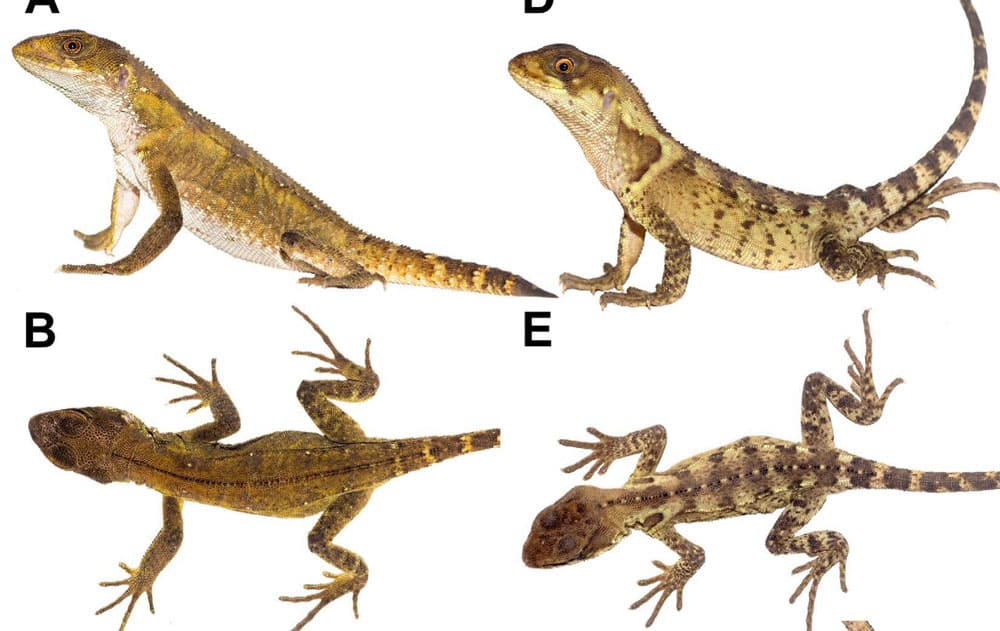The lizards were found in the Cordillera de Colán mountain range and the Río Marañón and Río Chiriaco basins in Peru.
Researchers in Peru have discovered and described two new species of wood lizard of the genus Enyalioides. The lizards were found in the Cordillera de Colán mountain range and the Río Marañón and Río Chiriaco basins in Peru.
Enyalioides dickinsoni was named after heavy metal band Iron Maiden’s lead singer, Paul Bruce Dickinson. The lizard was found in the Cordillera de Colán mountain range 460 miles north of Lima, Peru. Three localities are known to be home to this lizard species. its habitat includes coffee crops, cacao and citrus, as well as cow pastures. and mountainous forests at elevations from 4,600 to 5,600 feet (1,405-1,717 m).
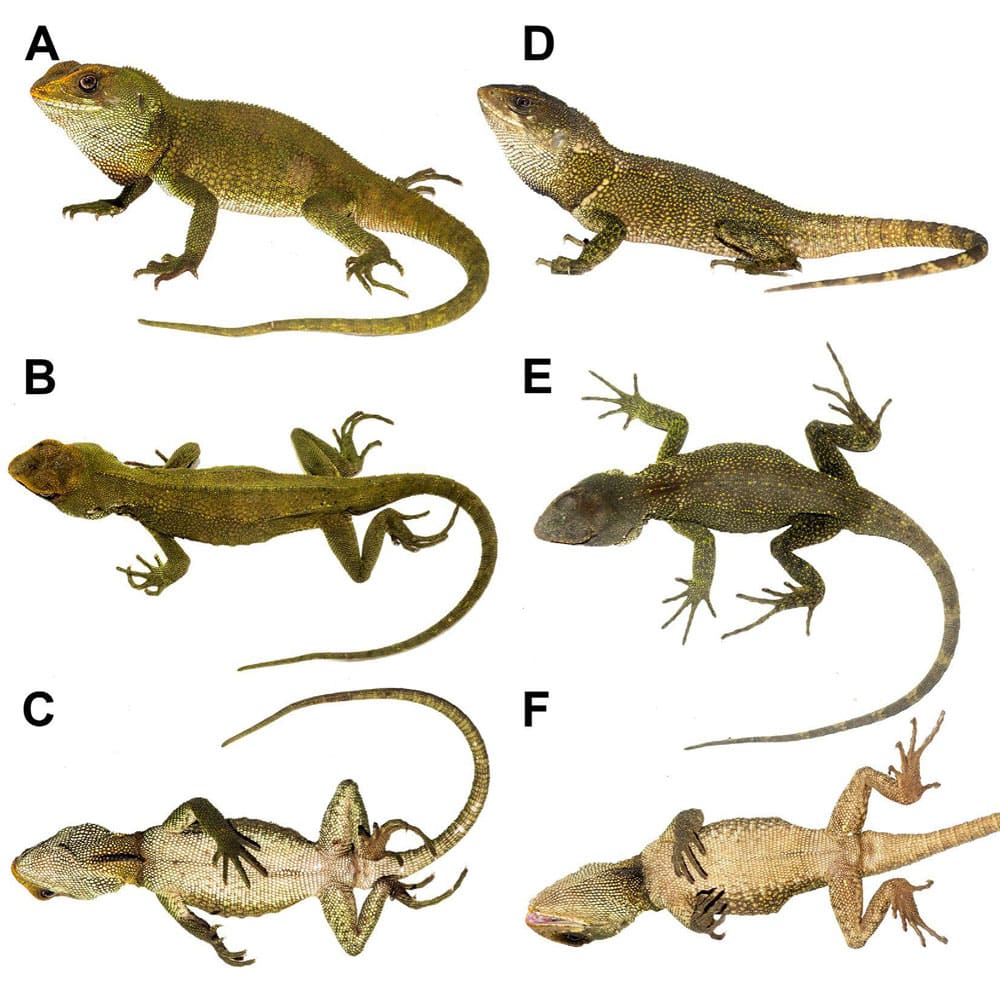
Two adult male specimens of Enyalioides dickinsoni sp. n.: (A-C) holotype CORBIDI 21351, SVL = 113 mm; (D-F) CORBIDI 21703, SVL = 92 mm (photo Axel Marchelie).
They can grow to about 11 inches in length with bodies covered in spiky scales with a spiked crest running down the back of both male and females. Their coloration varies from greenish with yellowish spots, both pronounced and subtle, and white throats. The coloration of females vary from dark brown to pale greenish. Some have black bands on the tail while others appear to lack any banding. The bellies are white to yellowish in coloration. The Dickinson’s lizard has a snout to vent length of 92mm to 113mm.
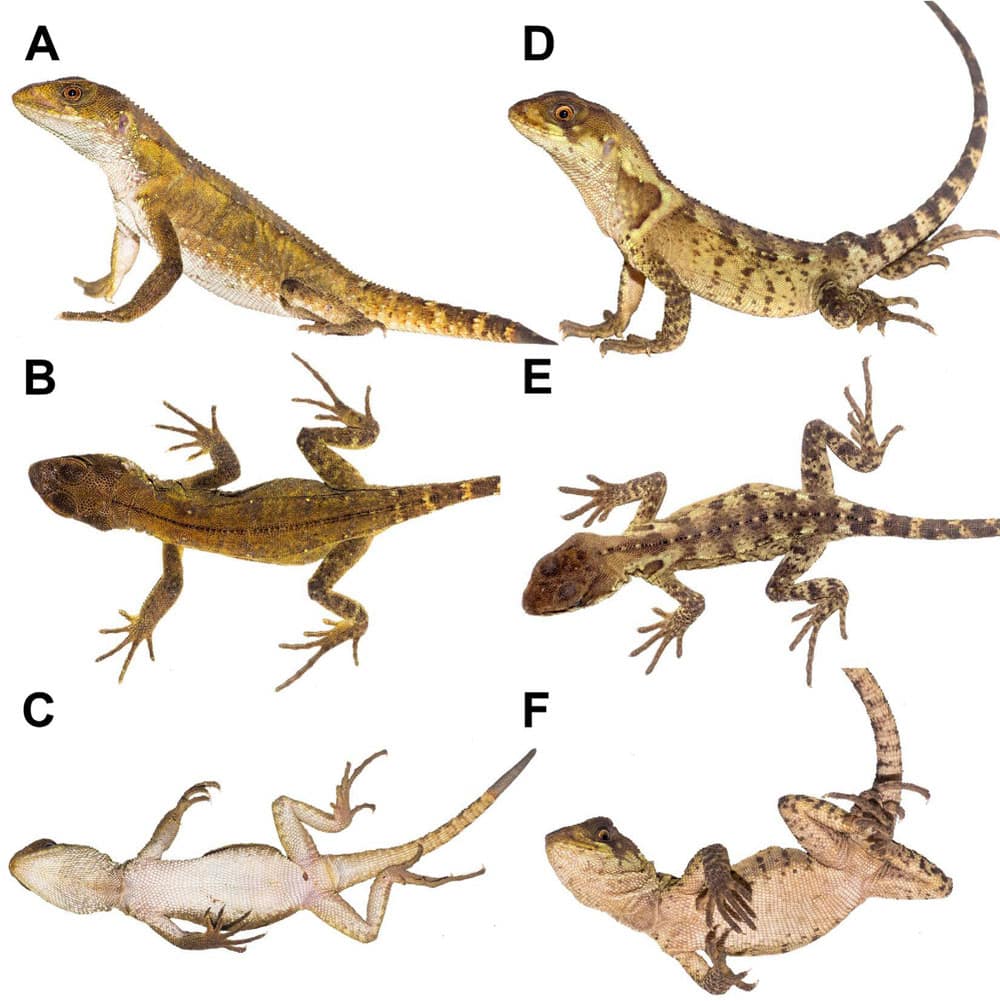
Female specimens of Enyalioides dickinsoni sp. n.: (A-C) adult female CORBIDI 21711, SVL = 87 mm; (D-F) juvenile female CORBIDI 21710, SVL = 83 mm (photo Axel Marchelie).
Enyalioides cyanocephalus has a green dorsal background in males. Females are brown. Males have an orange patch on the throat region. It occurs in the same localities as E. anisolepsis, on the Amazon slope of the Andes mountains in Southern Ecuador and northern Peru. It is known to occur in four localities with two in the Río Marañón basin and two in the Río Chiriaco basin.
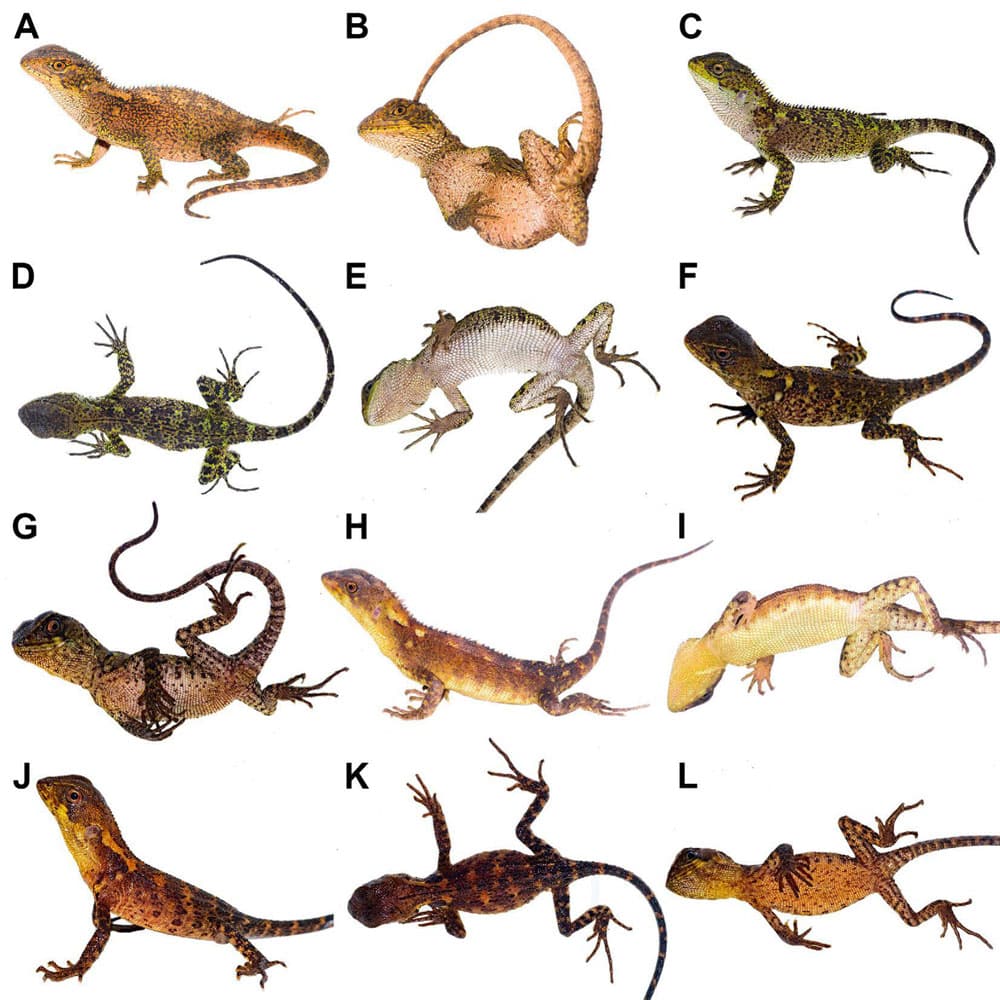
Female specimens of Enyalioides cyanocephalus sp. nov.: (A-B) adult female CORBIDI 20737, SVL = 112 mm; (C-E) adult female CORBIDI 22498, SVL = 102 mm; (F-G) juvenile female CORBIDI 22495, SVL = 46 mm; (H-I) adult female CORBIDI 20726, SVL = 102 mm; and (J-L) juvenile female CORBIDI 22496, SVL = 44 mm (photo Axel Marchelie)
It inhabits montane forests with cropland and cattle pastures. They were found sleeping at night 0.2 to 1.8 meters above the ground. They were sleeping on stems of bushes and plants, the study authors wrote.
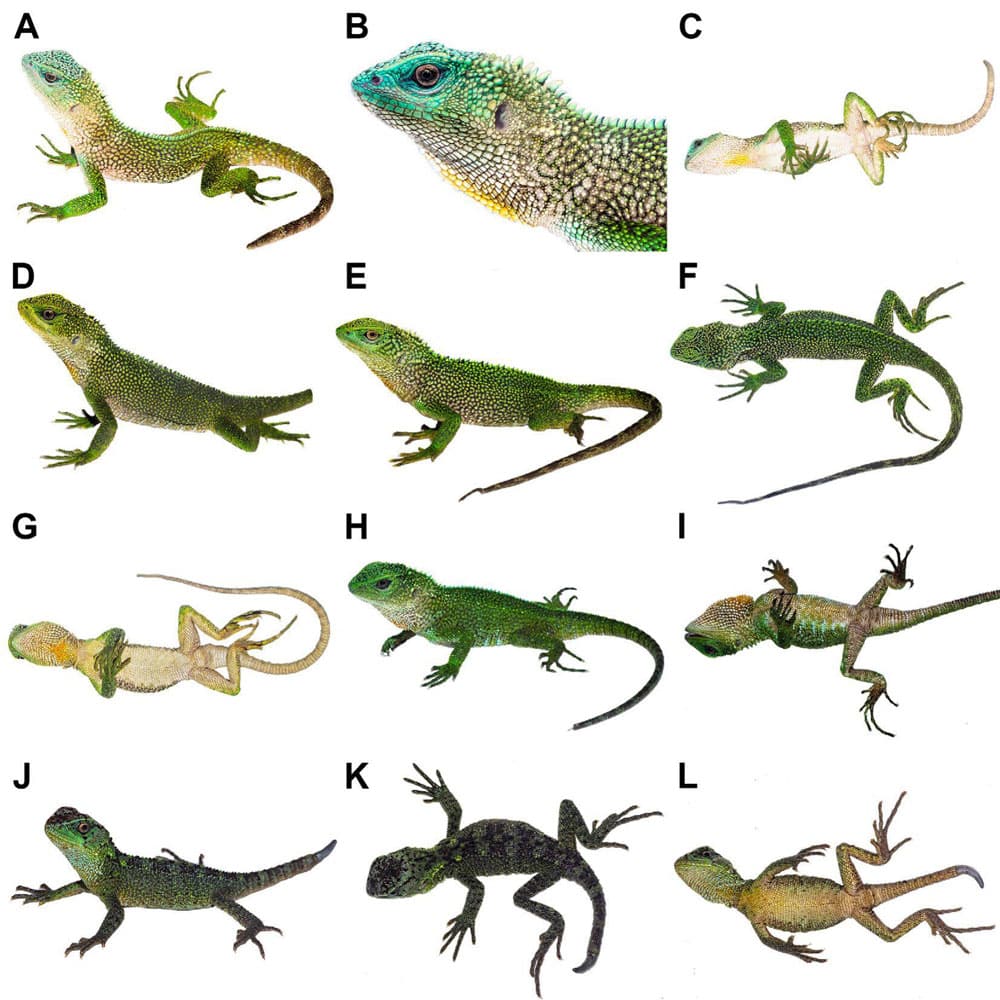
Male specimens of Enyalioides cyanocephalus sp. nov.: (A-C) adult male holotype CORBIDI 20781, SVL = 121 mm; (D) adult male CORBIDI 22501, SVL = 106 mm; (E-G) adult male CORBIDI 22499, SVL = 114 mm; (H-I) adult male CORBIDI 22500, SVL = 100 mm; and (J-L) juvenile male CORBIDI 22497, SVL = 65 mm (photo Axel Marchelie).
Enyalioides cyanocephalus differs from E. anisolepsis in that it has different scalation on the neck, body and crest. The holotype has a snout to vent length of 110mm with a total length of 112mm. It differs in coloration in that it has a turquoise head with “scattered black scales dorsally,” on the forelimbs and hindlimbs, a whitish neck with a greenish hue a pale green crest grayish white throat. The ventral surface is whitish with a dirty cream coloration to the tip of the tail.
Colorful Species Of Wood Lizard Discovered In Peru
The complete paper, “Two new species of wood lizards (Hoplocercinae: Enyalioides) from Cordillera de Colán in north-eastern Peru” can be read on the Journal of Vertebrate Biology website.

